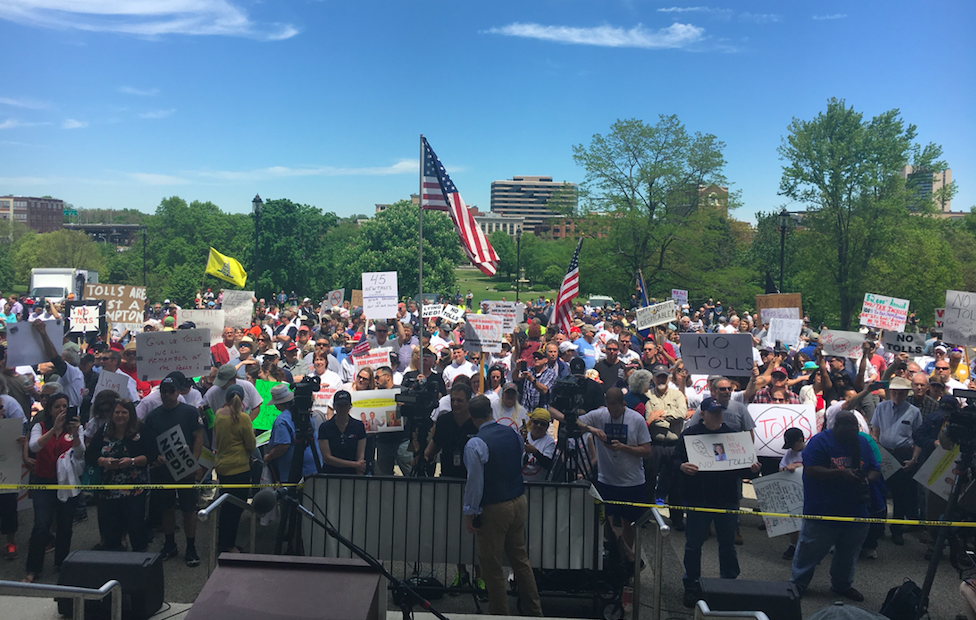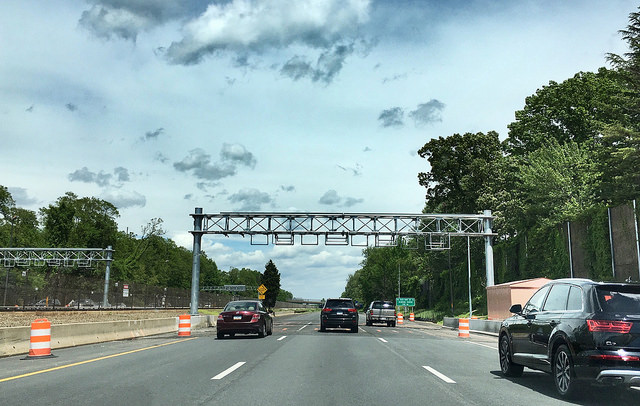The Connecticut Business and Industry Association on Monday issued a statement saying that although infrastructure is important to Connecticut’s economy, the association could not support “adding additional cost burdens, like tolls, on individuals and businesses.”
Although CBIA recognized the state needs to improve infrastructure, they faulted the legislature for diverting funds away from the Special Transportation Fund in the past and said it is incumbent upon the General Assembly to determine ways to fund transportation improvement.
But not with tolls.
“It is the consensus of the board that at this time of fiscal instability due to high state spending and fixed costs, we cannot support highway tolls as one of those funding mechanisms,” the CBIA wrote.
Gov. Ned Lamont has said that improving the state’s transportation system – including highways, bridges and public transportation – is key to making Connecticut a more business friendly state.
However, a number of businesses — particularly shipping and trucking companies — have said the tolls would cost them hundreds of thousands per year and they would have to pass that cost onto their customers.
CBIA said that although infrastructure is important, the state faces bigger problems.
“The state’s chronic short-and long-term fiscal problems—as evidenced by current and projected significant budget deficits—outweigh any of the other factors inhibiting economic and job growth in Connecticut, including infrastructure funding,” CBIA wrote in their statement. “These chronic fiscal problems have created a challenging environment for economic growth that is the reality in Connecticut today.”
“The troubling reality is that Connecticut continues to struggle with population loss and job and economic growth numbers that lag other states in the region and across the nation,” CBIA wrote.
Connecticut’s fixed costs now take up 53 percent of the state budget and the rising cost of pensions for state employees and teachers, along with retirement health benefits and debt service payments, threatens future budgets and could lead to more tax increases.
CBIA said the governor is “constrained” in his ability to address these issues but praised his desire to address fixed costs and reduce state spending through attrition.
That constraint is likely the 2017 SEBAC agreement negotiated between union leaders and governor Dannel Malloy, which extended the state employee benefits contract through 2027, meaning neither Lamont nor the legislature can make any reforms to state employee pensions or retirement health benefits without the approval of union leaders.
Connecticut’s job growth has also trailed the rest of the country, posting weak job gains and economic growth since the 2008 recession. The state has seen an outmigration of residents to other states, including some high-profile, wealthy investors which can rattle state revenue projections.
CBIA also said the state “at a minimum” must restore all money to the Special Transportation Fund and not divert funds elsewhere.
In his budget, Lamont proposed diverting vehicle sales tax revenue away from the STF to the General Fund, essentially bankrupting the STF by 2022.
The Finance, Revenue and Bonding Committee proposed allowing slightly more vehicle sales tax revenue into the STF, but still short-changed it significantly.
“We are hopeful that continued progress on improving the overall climate for growth in Connecticut, and sustained action on our fiscal problems, will lead the board to be able to support alternative funding mechanisms in the future,” CBIA wrote.

The announcement by CBIA comes just two days after No Tolls CT held a rally at the Capitol drawing 2,100 protesters speaking out against tolls.
With only two weeks left in the legislative session, the legislature must still negotiate and pass a budget. Budget proposals from Lamont, the Appropriations Committee and the Finance, Revenue and Bonding Committee have differed slightly, but all contained tax increases to make up for on-going deficits.
House Speaker Joe Aresimowicz said Monday that the controversial tolls bill – which Lamont has made the focus of his administration, thus far — may have to wait for a special session over the summer.


Victor
May 22, 2019 @ 8:37 am
and what about someone like me, i live in Harrison NY and commute 5 days a week to work in New Canaan CT, with the possibility of having to pay 2 tolls just to get to work every day i would probably be looking to find another job and i have been working in New Canaan happily for almost 15 years supporting your economy. it does not make sense